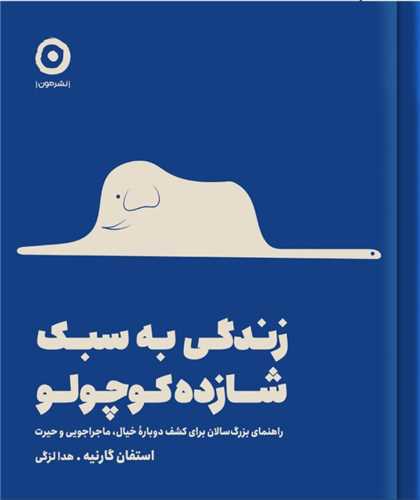Pārāduks-i Qudrat: Persiska (Farsi) 2024
پارادوکس قدرت
20,62 $
Dela
Wishlist
Originaltitel:
The Power Paradox: How We Gain and Lose Influence
ISBN:
9786225914667
Översättare:
Sānāz Āyatī
Förlag:
Moon
Åldersgrupp:
Vuxen
Sidor:
128
Vikt:
118 g
Produktmått:
14 x 21 x 1
,
1 cm
Bokomslag:
Pocketbok
A revolutionary and timely reconsideration of everything we know about power. Celebrated UC Berkeley psychologist Dr. Dacher Keltner argues that compassion and selflessness enable us to have the most influence over others and the result is power as a force for good in the world.
It is taken for granted that power corrupts. This is reinforced culturally by everything from Machiavelli to contemporary politics. But how do we get power? And how does it change our behavior? So often, despite our best intentions, we lose our hard-won power. Enduring power comes from empathy and giving. Above all, power is given to us by other people. This is what all-too-often we forget, and what Dr. Keltner sets straight. This is the crux of the power paradox: by fundamentally misunderstanding the behaviors that helped us to gain power in the first place we set ourselves up to fall from power. We can't retain power because we've never understood it correctly, until now. Power isn't the capacity to act in cruel and uncaring ways; it is the ability to do good for others, expressed in daily life, and itself a good thing.
Dr. Keltner lays out exactly--in twenty original "Power Principles"-- how to retain power, why power can be a demonstrably good thing and the terrible consequences of letting those around us languish in powerlessness.
more
فقط افراد ثروتمند و مشهور نیستند که با اغوای قدرت سقوط میکنند. این خطر هر لحظه یکایک ما را تهدید میکند. خودداری از تمرکز بر دیگران میتواند به از بین رفتن همدلی و از دست دادن شفقت و روی آوردن به اقدامات تکانشی و غیراخلاقی و رفتارهای گستاخانه و غیرمتمدنانه منجر شود. وقتی احساس قدرت میکنیم، میتوانیم بهراحتی رفتارهای غیراخلاقی خود را با احساس برتریجوییای که دیگران را تحقیر میکند توجیه کنیم. این لب کلام پارادوکس قدرت است: اغوای قدرت سبب میشود همان مهارتهایی را که در وهله اول به ما قدرت میداد، از دست بدهیم. سوءاستفاده از قدرت در جایجای زندگی اجتماعی ما رخ میدهد و موجب پرخوری، فحاشی، بیادبی، دروغگویی، روابط نامشروع، خشونت جنسی، خشونت نژادی، رفتار غیراخلاقی و رانندگی متکبرانه میشود. سوءاستفادههای انباشته از قدرت موجب بیاعتمادی در کار، کاهش تعهد و نزدیکی در خانوادهها، ازهمگسیختگی و نبود همدلی و مشارکت در جامعه مدنی میشود.
more
















